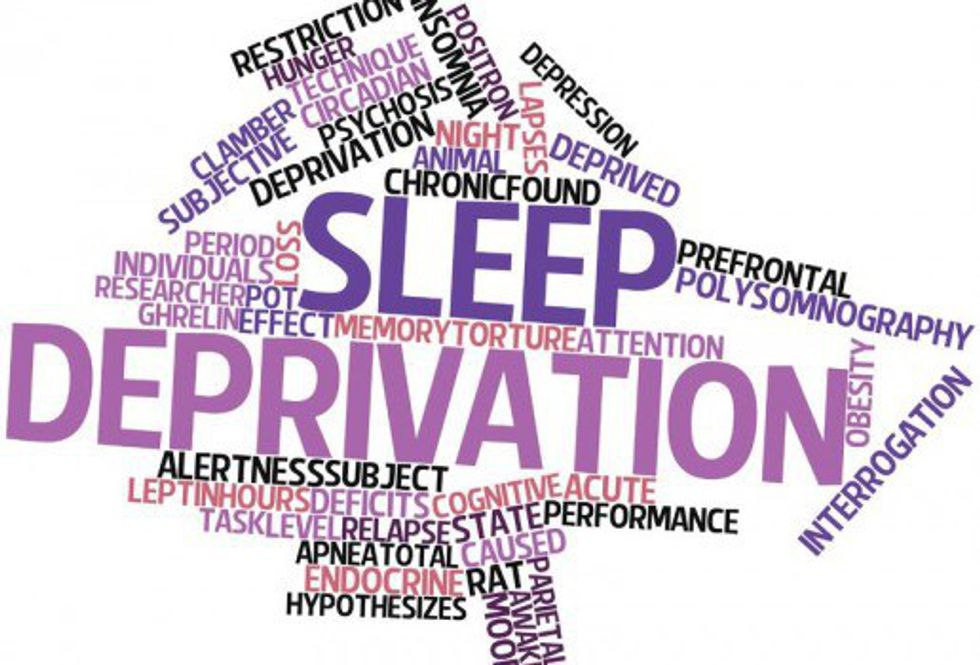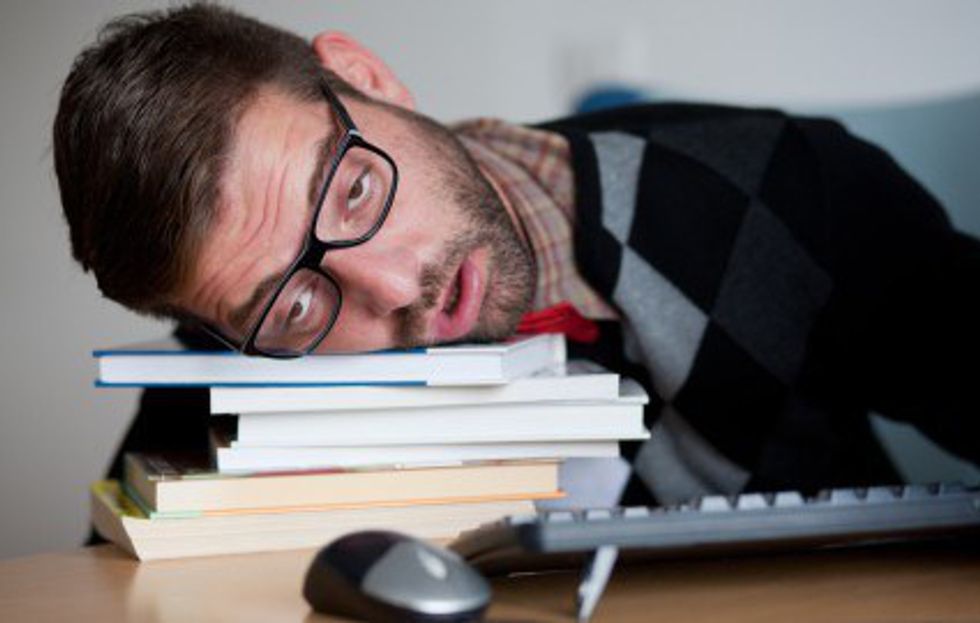Basically, sleep deprivation is when one doesn’t get enough sleep. When someone is in a chronic sleep-restricted state they’ll notice excessive daytime sleepiness, fatigue, clumsiness, and weight gain or weight loss. In addition, being sleep-deprived affects both the brain and cognitive function.
Unlike other basic bodily functions, such as eating and breathing, we still do not fully understand why people need to sleep. There are theories, some think sleep may be the process by which the brain shuts down so it can store the day’s memories. Others, like Dr. Joyce Walseben, a psychiatrist and the former director of Bellevue Hospital’s Sleep Disorders Center, point to sleep’s importance in regulating the body’s hormones. But these theories are not complete.
Sleep deprivation is nearly as misunderstood as sleep itself, but it can
physically and mentally harm people in myriad ways. Losing sleep can
cause hallucinations, psychosis, and long-term memory impairment. Some studies have linked sleep deprivation to chronic conditions like hypertension, diabetes, and bipolar disorder. In 2003, neurologists at the University of Pennsylvania found that sleep deprivation over three consecutive nights (in the study,
staying awake for 88 hours) as well as chronic sleep loss (in the
study, four to six hours of sleep each night for 14 nights) seriously
impaired cognitive functions in healthy adults. Also in 2003, Japanese
researchers found that total sleep deprivation can cause high blood pressure and has “profound” effects on the immune system.
In 1989, at the University of Chicago, researchers observed rats which
died after being kept awake non-stop for several weeks. (According to a
2009 article, specialists who have looked at the 1989 study
dispute which effects of sleep deprivation ultimately killed the rats.
It could have been hypothermia brought on by decreased body
temperatures, illnesses that arose from damaged immune systems, or
severe brain damage.) In July 2012, Chinese soccer fan Jiang Xiaoshan
died after staying awake for 11 days to watch all of the European
Football Championship. In August, a Bank of America intern died after three days of sleep deprivation.
There’s a subset of cases whereby sleep deprivation can actually lead to an enhanced mood, alertness, and increased energy. Note that relatively few studies have compared the different effects between chronic partial-sleep restriction and acute total-sleep deprivation, and the total absence of sleep over long periods of time has not been studied in humans.
When rats were exposed to prolonged sleep deprivation the result was
that both food intake and energy expenditure increased, resulting in a
net weight loss, and ultimately leading to death. The hypothesis of this
study is that when moderate chronic sleep debt
goes hand-in-hand with habitual short sleep, energy expenditure and
increased appetite are encouraged; and, in societies where high-calorie
food is freely available the equation is tipped towards food intake
rather than expenditure. Nationally representative samples used in
several large studies suggest that one of the causes of the United
States obesity problem could possibly be due to the corresponding
decrease in the average number of hours that people sleep. These
findings indicate that the hormones that regulate appetite and glucose
metabolism could be disrupted because of sleep deprivation. It appears
that the association between obesity and sleep deprivation is strongest
in young and middle-age adults. On the other hand, there are scientists
who believe that related problems, such as sleep apnea, together with the physical discomfort of obesity, reduce a person’s likelihood of getting a good night’s sleep.
potential when it comes to treating depression. We know that people suffering from depression experience earlier incidences of REM sleep, plus increased rapid eye movements; and monitoring a patient’s EEG and waking them during bouts of REM sleep appears to produce a therapeutic effect, thus alleviating symptoms of depression.
When sleep deprived, up
to 60% of patients show signs of immediate recovery; however, most
relapse the next night. It’s believed that this effect is linked to
increases in the brain-derived neurotrophic factor (BDNF). It’s also
been shown that, in normal people, chronotype is related to the effect
that sleep deprivation has on mood: following sleep deprivation, people
who prefer mornings become more depressed, while those who prefer
evenings show a marked improvement in their mood. In 2014, a
thorough evaluation of the human metabolome in sleep deprivation
discovered that 27 metabolites are increased following 24 waking hours,
with suggestions that tryptophan, serotonin, and taurine may be
contributing to the antidepressive effect.
If you are struggling with sleep deprivation symptoms, you should talk to your physician about treatment options.

























